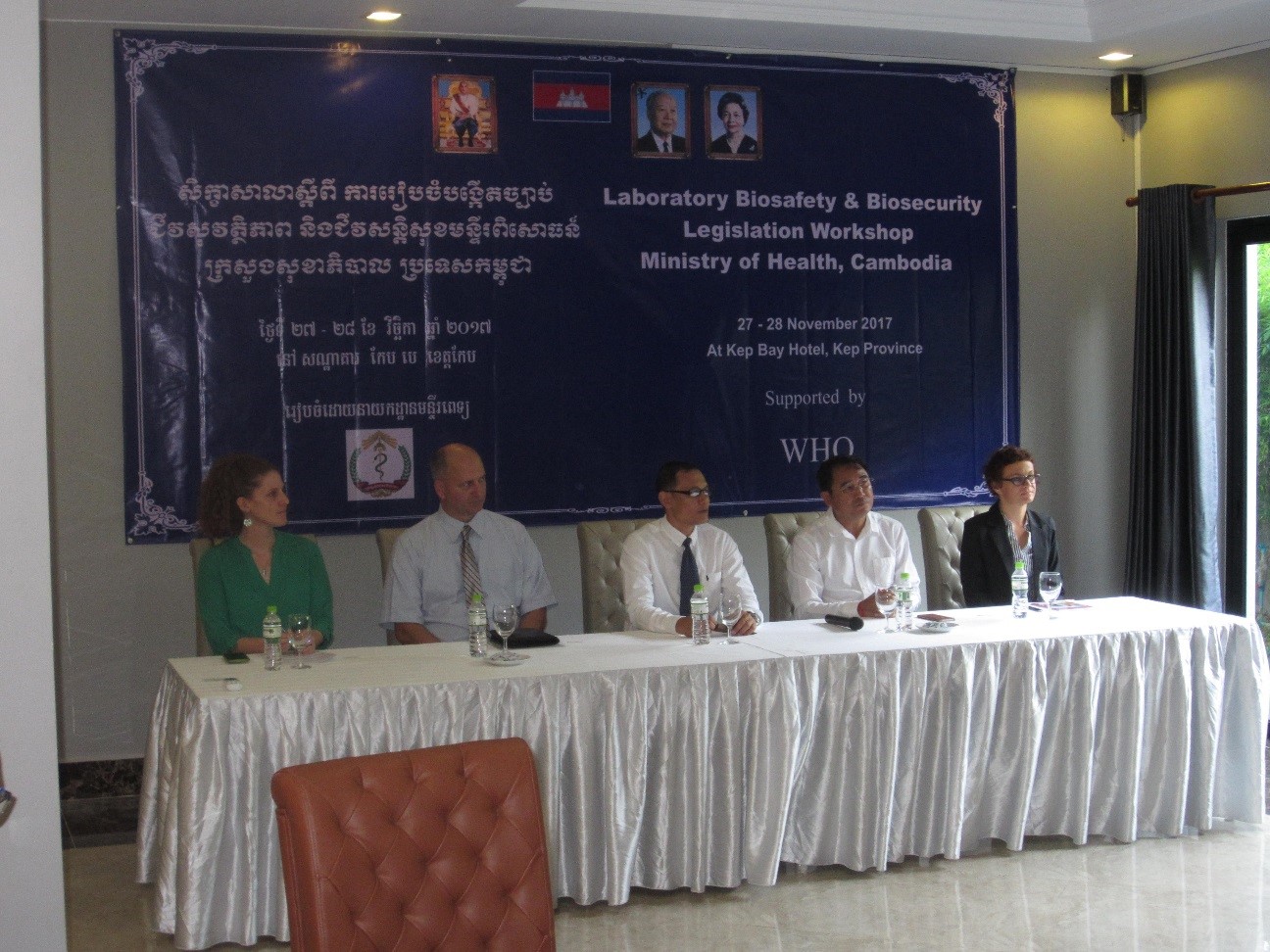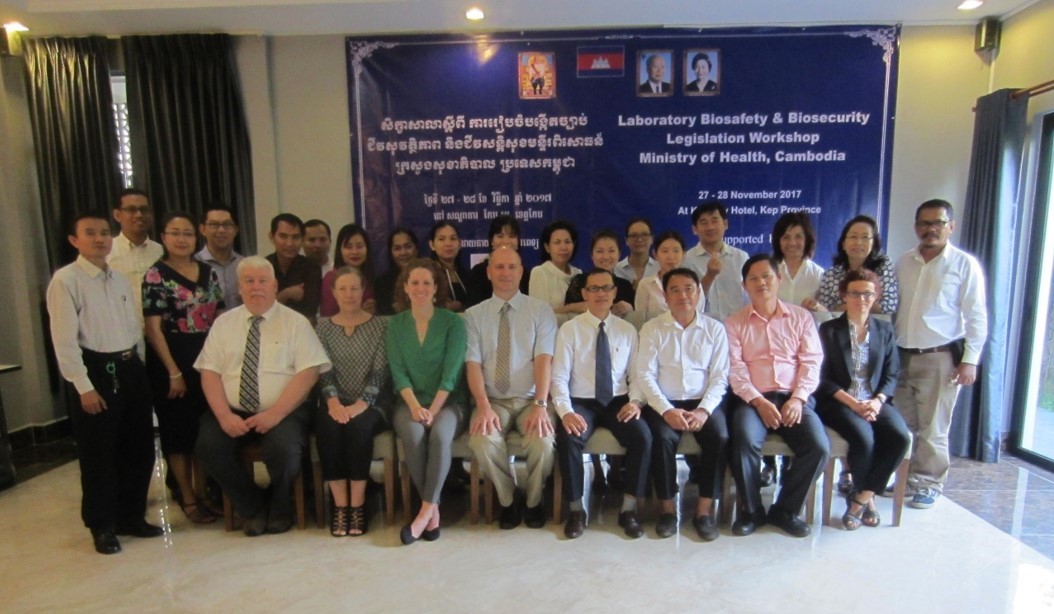Strengthening laboratory biosafety and biosecurity capacity through legal frameworks

Opening Session of the Laboratory Biosafety & Biosecurity Legislation Workshop
Recent years have seen incidences of global biosafety and biosecurity lapses in laboratories , and with the growth of laboratory capacity across the world, policies to ensure the safety of their operation are a global concern. With the increased growth of higher-tiered BSL laboratories, some countries have chosen to support the development of laboratory biosafety and biosecurity systems across human, animal, and agricultural facilities by enacting laws that require governmental responsibility for regulating laboratory biosafety and biosecurity.
Cambodia continues to strengthen public health capacities and systems under the Global Health Security Agenda, including strengthening laboratory safety within the Cambodian Ministry of Health (MOH) laboratory networks. In November 2017, laboratory leadership from the Cambodian MOH collaborated with technical experts from CGH, NCEZID, and the CDC country office to facilitate a workshop to strengthen biosafety and biosecurity practices within Cambodia’s national laboratory network. The workshop focused on the role of law as a public health tool and provided a platform for multisectoral stakeholders to draft regulations for public health laboratory biosafety and biosecurity management of highly dangerous pathogens and toxins.
The country’s decision to draft a Prakas (ministry regulation) which would apply within the MOH is the first step in creating a Kram (national law) to establish laboratory controls over all highly dangerous pathogens and toxins within Cambodia. Drawing upon recommendations outlined in Cambodia’s Joint External Evaluation of International Health Regulations (IHR) conducted by the World Health Organization (WHO) in 2017, the proposed Prakas is intended to help increase compliance with various laboratory safety provisions involving management of specific hazardous pathogen and toxins (HPT). The proposal identifies management authorities, designated HPT agents and scope, maintenance of laboratory records, and storage, transport, and destruction requirements for HPT.

Laboratory Biosafety & Biosecurity Legislation Workshop participants
The workshop was chaired by Dr. Sau Sokunna, Deputy Director, Bureau of Medical Laboratory Services in the Cambodia MOH. Representatives from WHO, MOH Provincial Laboratories, MOH Legislation Department, and various nongovernment organizations working within Cambodia’s public health system attended. CDC laboratory and policy representatives worked with participants on discussion based activities to review legal domains and characteristics that could support a sustainable biosafety/biosecurity framework. The participants examined current laboratory capabilities, capacities, and practices to identify areas within public health laboratories where legislation could be used to expand and strengthen safety practices, including training requirements, management systems, and infrastructure.
Project teams from DPEI, DGHP, and CGH OD will continue to provide technical assistance to the Cambodian MOH as they finalize the development of this Prakas. When passed, this Prakas will be the first regulation within the Cambodian MOH created to improve laboratory safety involving possession, use, storage, and transfer of HPT within public health laboratories within Cambodia.
For more information please contact Emily Rosenfeld yhc5@cdc.gov or Jerry Pellegrini gcp2@cdc.gov.